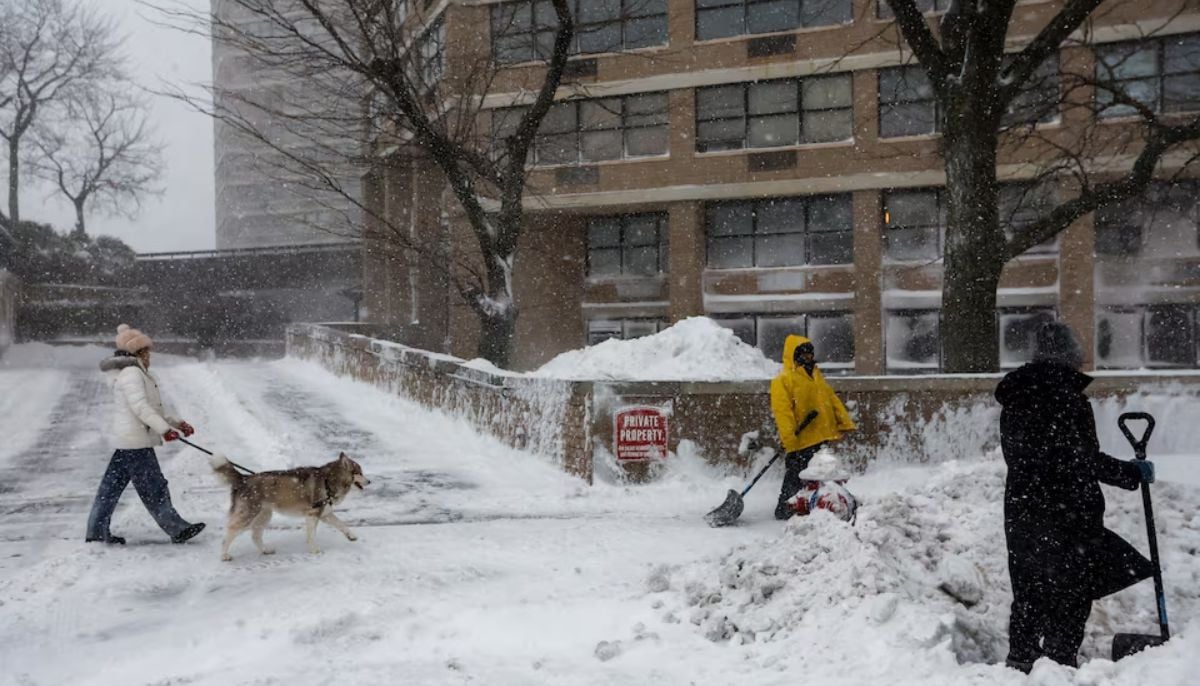Pakistani students to take legal action for being forced to pay for housing despite moving out
After UK announced lockdown in March, many Pakistani students returned but are still being forced to pay for their accommodation in universities
LONDON: International students, including those from Pakistan, who have returned to their home countries owing to coronavirus lockdown in the UK are pondering initiating legal action over contracts forcing them to pay for their accommodation.
The COVID-19 outbreak has left almost 8,000 people dead and over 65,000 infected.
Britain in March announced a lockdown that led most universities to shift their classes online via apps such as Zoom and Microsoft Teams. Many advised students to return to their homes amid the crisis so that they could be closer to their families.
However, despite online classes, numerous students remain stuck in exploitative student contracts that are now forcing them to pay accommodation fees for April, May, June, and July despite not using the facilities.
Speaking to The News, Ibrahim, who lived in a house managed by Sanctuary Student Homes Limited, said: "I have been residing at an accommodation by Sanctuary Students since September 2019 and my final installment was due in the first week of April.
"I left London shortly before the lockdown was imposed until the coronavirus would subside," he added. "Since the room has been vacant given the current global pandemic, I made a plea to the agency that they should not deduct the final installment [...] and I also expressed the concerns of my financial struggle.
"They outright refused my request and firmly stated that I would have to pay the installment no matter what unless I manage to find replacement. I found this response [to be] very vague as it makes no sense as to how one would be able to find a replacement tenant given the current pandemic."
Student accommodations in London cost an average of £800 (Rs166,500) for a single room and upwards of £1,200 (Rs249,800) a month for a studio apartment.
Many parents who supported their children's education abroad now find it extremely challenging to continue sending money for such expenses as their sources of income have been drastically affected by the lockdown in Pakistan.
One such parent, who used to send their daughter who studies law in London around £1800 (Rs374,700) per month as general expenses, told The News: "I run a garments factory in Karachi but ever since this lockdown, we are unable to go to work. We are unable to deliver our orders and get our due payments from our clients.
"I have had to support my workers who have not received any financial assistance from the government of Pakistan so how can I continue to send hundreds of thousands of rupees abroad when we are earning here?"
Muhammad Faran Malik, a student who is in a similar situation and studies at the School of African and Oriental Studies — SOAS University of London — said: "I left Dinwiddy House [also owned by Sanctuary Student Homes Limited and reserved for SOAS students] on March 18, 2020, to return to Pakistan as I did not want to be stranded because of the travel ban.
"Most of my flatmates had already left by that time. I was a bit shocked when my accommodation management told me that I cannot opt out of the contract and will still have to pay for the remaining months even though I will not be living there anymore.
"What shocked me more was that they kind of treated this global crisis as if everything was normal," he added, expressing disbelief. "My university said that they are not able to do much as the accommodation is run by a third party."
Multiple universities, on the other hand, have offered their students partial refunds due to the impact the virus had on their degrees.
On the other hand, despite feeling helpless, many of those being forced to continue paying for accommodation are united and plan to take legal action against the exploitative contracts.
(£1 = Rs208.17)
-
More than 500,000 without power as blizzard hits US Northeast
-
Charli xcx details boozy second wedding to The 1975's George Daniel: 'Everyone was hungover'
-
ICE agent misfired bullet into Minnesota hotel’s guest room
-
Piers Morgan reacts to photo with Ghislaine Maxwell
-
UK data privacy regulators raises safety concerns, warn against AI-generated images
-
Rape suspect flees aboard after mistaken prison release
-
Jack Hughes' patriotic words spark calls for Tate McRae to dump her boyfriend
-
US government to cease collecting tariffs after Supreme Court ruling












